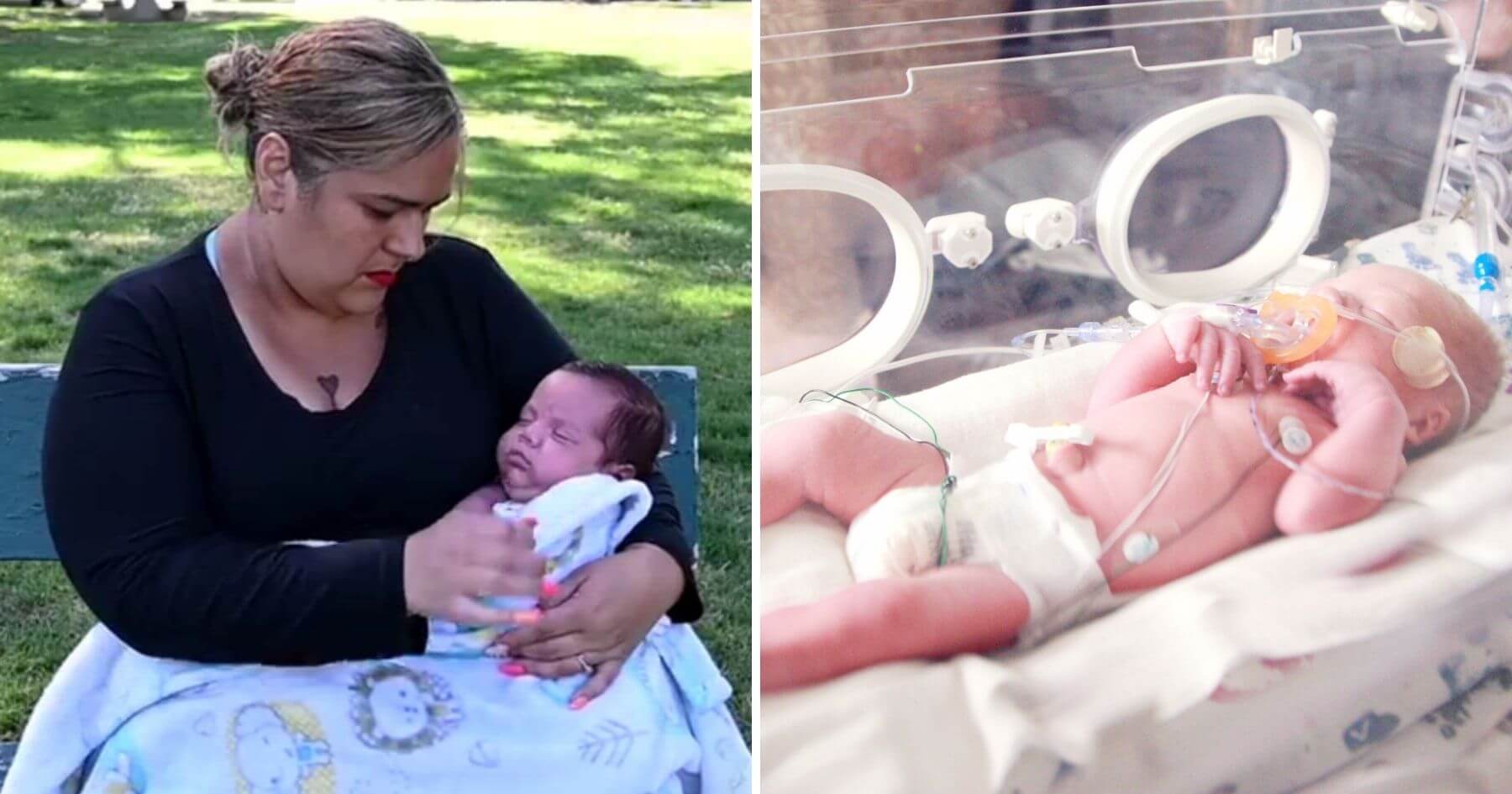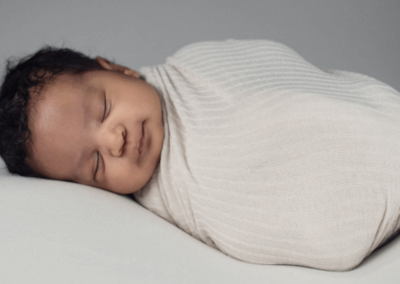A woman who was transferred to intensive care with COVID-19 pneumonia and respiratory failure 31 weeks into her pregnancy has now recovered along with her baby.
39-year-old Katrina was in intensive care where she was placed in an induced medical coma due to COVID-19 pneumonia and respiratory failure 31 weeks into her pregnancy. Several days later, doctors were forced to deliver her baby boy prematurely via caesarean section.
“Miracle Mateo”
“This is Miracle Mateo”, Katrina told reporters while cuddling the infant.
She said, “The nurses did an amazing job. They put their love, their heart, and time into making me better”.
Lorena Acevedo, nurse, and director of maternal and child health at Kaiser Modesto Medical Center said “We were all so worried about Katrina and the baby. We were doing everything, working with the ICU team and praying for her”.
Prior to COVID-19, Katrina worked as an in-home caregiver. Her own household was home to nine other people, including her partner, Johnny, their three children, her mother, and her brother, Larry, with his family of three. She added, “We were staying safe. I only went to the grocery”.
She said Larry, 41, had been in poor health. He had diabetes and was fighting a foot infection that wouldn’t heal. In January he was admitted to hospital for foot surgery, and his COVID-19 test at admission was negative. However, when he returned home he did not get better.
Katrina said that at the end of January, she and her mother began to suffer from flu-like symptoms, but assumed it was allergies because Larry’s COVID-19 test had been negative.
On 29 January 29 Larry suffered cardiac arrest at home. He was taken by ambulance to the hospital, and about two hours later, Katrina got a call to say that he had tested positive for COVID-19. Larry sadly passed away on 1 February.
Everyone in the house then tested positive for COVID-19, but while they got better Katrina said, “At that point, I was starting to feel worse”.
Katrina was concerned about being admitted to the hospital as she feared conditions there could make her situation worse. As suggested by her doctors, she borrowed an oximeter to monitor her oxygen levels.
On 4 February, Katrina was experiencing breathing difficulties, and her oxygen level dropped to 88% (normal levels are 94% to 100%). She was advised to go to Kaiser Manteca Medical Center right away. Upon arrival, she was given oxygen and transported to the Kaiser Modesto hospital where specialised care for pregnant patients is available.
Katrina added, “I didn’t even say goodbye to my kids or my other half”, Katrina said. “I was confident, confident that I was going to be OK”.
Dr. Jane Brady, the chief of obstetrics and gynecology at Kaiser Modesto, who had cared for Katrina during her first pregnancy with her now four-year-old son and again during this hospitalisation, said: “She was our sickest patient. She was our only pregnant, intubated due to COVID, patient. We were all scared for her”.
At 31 weeks gestation, Katrina had COVID pneumonia and required a ventilator. She was placed in a medically induced coma.
Katrina said, “They had no plans to deliver the baby (unless) my heart stopped”. The maternal child health team helped the ICU team place Katrina face down while on the ventilator, a challenging procedure during pregnancy, but one that is proven to result in higher oxygen levels for patients with COVID pneumonia.
Katrina’s situation was so critical that doctors practiced a mock C-section in her ICU room, as they knew that if the baby needed to be delivered, she was not stable enough to transfer to the operating room. This test paid off as the feared worst-case scenario happened.
Dr Brady explained, “About three or four days after she was intubated, the baby showed signs of distress”.
On the night of 11 February, the fetal heart monitor showed the baby was in trouble and needed to be delivered immediately.
Nurse Acevedo said, “They were able to get the baby out in less than five minutes. Mateo came out screaming. Both he and mom did very well from the C-section in her room”.
“I had no idea that I gave birth, none at all”, Katrina said.
Dr Brady believes the steroids given to Katrina to treat her COVID pneumonia probably helped Mateo’s immature lungs prepare for breathing.
In recovery
Katrina was hospitalised for four weeks, and the COVID-related Guillain Barre syndrome, a rare condition that occurs when a person’s immune system attacks the nerve fibres, caused further complications.
While Katrina is recovering, she is still suffering from lingering symptoms, including hair loss, weakness in her arms, and poor appetite.
Katrina said, “I think I’m about 90% back to my normal activities”. She also said she challenged herself to recover quickly because her four children need her.
Mateo also remained in the hospital for four weeks – a typical length-of-stay for an infant that premature. He also has a small heart murmur, though this is not expected to impact his long-term health.
“Mateo is growing; he’s already 12 pounds”, said Katrina, as she caressed him during the interview.
She also added that her three older sons are protective of and ‘madly in love’ with Mateo, but that she knows they are still grieving for their late uncle.
“I told my family when I came home that I don’t care what happened yesterday, just what happens today. It could’ve been so much worse”, Katrina said, “If I’m healthy and happy, that’s all that matters”.
A spokesperson for Right To Life UK, Catherine Robinson, said: “It is truly amazing that Katrina and Mateo had a wonderful team of doctors and nurses to ensure their survival and recovery. However, stories of premature births also continue to highlight the cruelty and inconsistency of abortion law. Baby Mateo, born at just over 31 weeks, could have been aborted in the UK if he was known to have had a disability before birth”.












